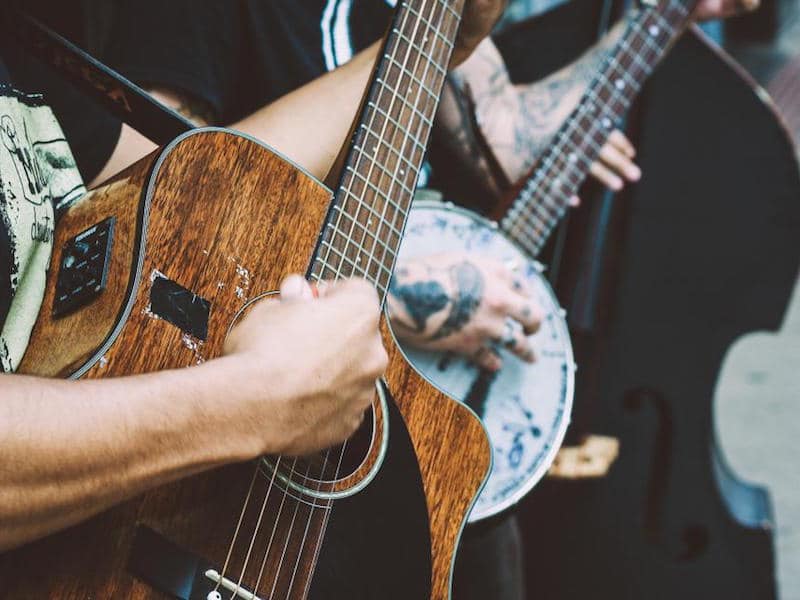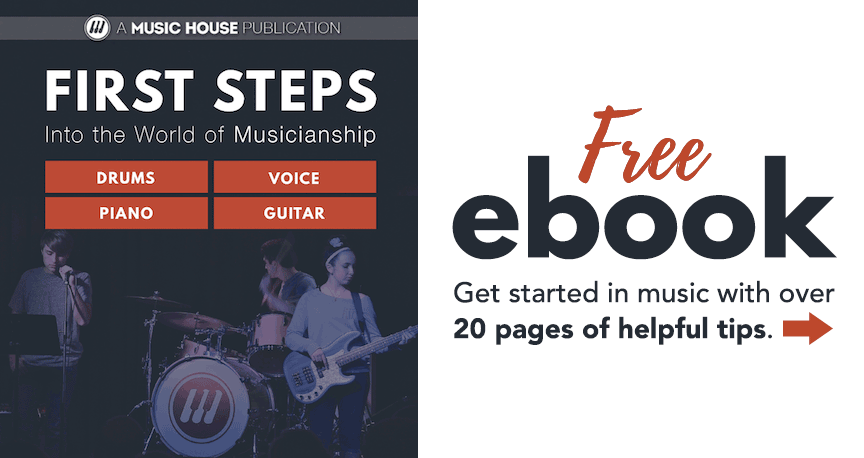A Musician's Guide to Happiness

Playing music should always be a positive experience. If you take the wrong approach as a musician, however, you could find yourself frustrated and unhappy. This would be tragic. Playing music is an art form that should be enjoyed by all. I certainly don't claim to be an all-knowing, musical Buddha of sorts, but I've been a musician for a while and I've discovered some things that have helped me enjoy my musical journey more. I hope you'll find that these guidelines can help you achieve some peace of mind as a musician as well.
Always Keep an Open Mind
The worst decision you can make is to turn your back on a certain genre or style because it isn’t what you’re currently interested in at the time. Good music is good music, regardless of genre or style. Also, I’ve got news for you, genres don’t really exist anymore (but that’s a topic for another blog).
I’ll share a personal anecdote with you. When I was in high school, my mom tried to convince me to join the school’s jazz band, which happened to be a pretty good one. I had already been playing the guitar for awhile and was becoming more and more skilled. However, I had a sort of ‘musical tunnel vision’ at the time. This is very common with young musicians. I thought rock music was the only music for me and everything outside of rock was just, well, lame. Basically, I thought jazz music was for pretentious academics who had no soul and dang, was I wrong. Despite my mom’s best efforts I did not join the jazz combo. Sure enough, when I got to college and dove further into studying music I really started to appreciate and love jazz. I played in jazz combos in college and enjoy listening and playing jazz today.
If you continue to shackle yourself to only one band, artist or genre, you’ll miss out on amazing music and you’ll end up regretting it.
The bottom line is that you’ll remain happy as a musician if you simply keep an open mind and continuously seek out new music. If you continue to shackle yourself to only one band, artist or genre, you’ll miss out on amazing music and you’ll end up regretting it.
Love the Process
When it comes to making music, the process is what is really important. We play music when we’re practicing and we play music when we’re performing. We practice because we want to improve (to enjoy playing more or maybe to pass an audition or prepare for a concert). We perform because we enjoy it. Maybe we need to perform to make money or perform because of outside pressure (Ex. “Mom and dad are making me,” “I want to feel cool,” etc.)
Practicing our instrument to improve or performing because we enjoy it is authentic. The audition will come and go, the money you make from the gig will come and go, outside pressure will come and go. The process will always be there. You may ask, “But Andy, what about recording? A musician records to produce a completed product.” This is a valid question. I think recording is simply capturing the process, which we can relive over and over again when we listen. Take comfort in the process always being there, learn to enjoy it, and you’ll always be happy making music.
The world of music is endless. It is impossible to learn all there is to know. There’s so much out there it can be overwhelming at times. Constantly remind yourself that you don’t just play music to achieve some sort of ultimate end goal. Of course, we do need to set small goals to improve, but a musician is never done with music. The possibilities in music are endless and the point is to have fun exploring.
Take comfort in the process always being there, learn to enjoy it, and you’ll always be happy making music.
There's No Such Thing as a Perfect Performance
Human beings are imperfect and we live in an imperfect world, therefore we can never actually achieve playing a perfect show. Okay, maybe once or twice when all the stars align.
I hope this encourages you to avoid dwelling on the little things that may go wrong during a performance, such as poor sound quality, flubbing a note, and equipment problems (this list can go on and on, but you get the point). When something goes awry, just move on and don't let it affect your state of mind for the rest of the show. The most important aspects of a good performance are producing good energy onstage and connecting with your audience. If you can accomplish both, nothing else matters.
See Live Music as Often as Possible
I think the best way to get inspired to play music is by going out to see live music. Studies have found people who go to concerts are happier and it makes sense. Think of the last great concert you attended. How did it make you feel? Happy, right? If you’re going out and seeing great live music often, you’re feeling happier often, and this positivity will translate to playing your own music more often.
If you’re going out and seeing great live music often, you’re feeling happier often, and this positivity will translate to playing your own music more often.
Listen to All Kinds of Music
Again, finding inspiration is key for motivation. Can't get to live shows enough? Simply listening to music can do the trick as well. There’s always time in the day to listen to music. At home when you’re getting ready for school or work, in the car during your commute, when you’re at work or studying for a test, at night when you’re winding down, etc. Do yourself a favor and invest in a good pair of headphones. Listening is the most vital part of becoming a stronger, happier musician. The ear is the most important tool in a musician’s toolbox. The easiest way to sharpen this tool is by feeding it varied music constantly.
Did I Mention Keep an Open Mind?
Music is such a powerful and unique art form that has the potential to challenge us constantly. Don’t fight it. It’s consequence free. You can try anything musically and if you happen to fall on your face in the process, it doesn’t hurt.
Try using these guidelines in everyday life as a musician. I think you'll experience a bit more peace of mind and happiness throughout your musical journey.

